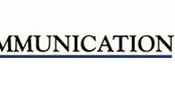

|
|
| Learn what to say... and what NEVER to say! |
|
|
Our PIE Model of Communication
|
Patient Interview not Going Well? Start Again! By Edward Leigh, MA Your interviewing a patient and things are not going well. The patient does not seem to be following or even worse seems upset. Dr. Lony C. Castro, a professor and chairwoman of the Obstetrics and Gynecology Department at Western University of Health Sciences, suggests starting the interview again. Dr. Castro wrote an article for the Los Angeles Times in which she talked about the benefits of a "second take" (Dr. Castro is in LA so she can use movie jargon!). She discussed an experience she had with an end-of-the-day patient at a time when she was hoping to wrap up on time and get home. Her patient meeting did not go well and she thought, "If only I could start over." Then she decided to do just that — she asked the patient if we could start again. She began the interview again and it was very successful. Tips to make the first encounter the best: Stop for a moment and mentally prepare. Before you knock at your next patient's door, take a deep breath and mentally prepare for the visit. If you are distracted with other patient issues or your own personal issues, it is time to put those aside and focus on this particular patient. Explain medical information to patients in an understandable way. Rushing through complicated medical details can confuse patients. They will end up feeling frustrated. If you don't think you have time to explain, think about how much time will be spent if the patient doesn't understand and has to call you back or make a return visit. Body language and nonverbals. Make sure yours are patient friendly – good eye contact, facing the patient and never keeping your hand on a doorknob! Also, look at the patient's cues — do they seem puzzled, anxious or distracted? If you need to start over: After obtaining the patient’s permission, Dr. Castro physically left the examination room and began the interview from the very start. This second try worked and the patient was very satisfied with the meeting. You do not necessarily need to leave the room. You can simply state, for example, "I know this is a lot of information. Let's start again, if that is acceptable to you." Work on making the first encounter the best possible meeting. However, if you need to start again, that is fine too. |
The Center for Healthcare Communication • P.O. Box 18819 • Cleveland, Ohio 44118-0819 USA Site designed by I Am Orange Media Group |